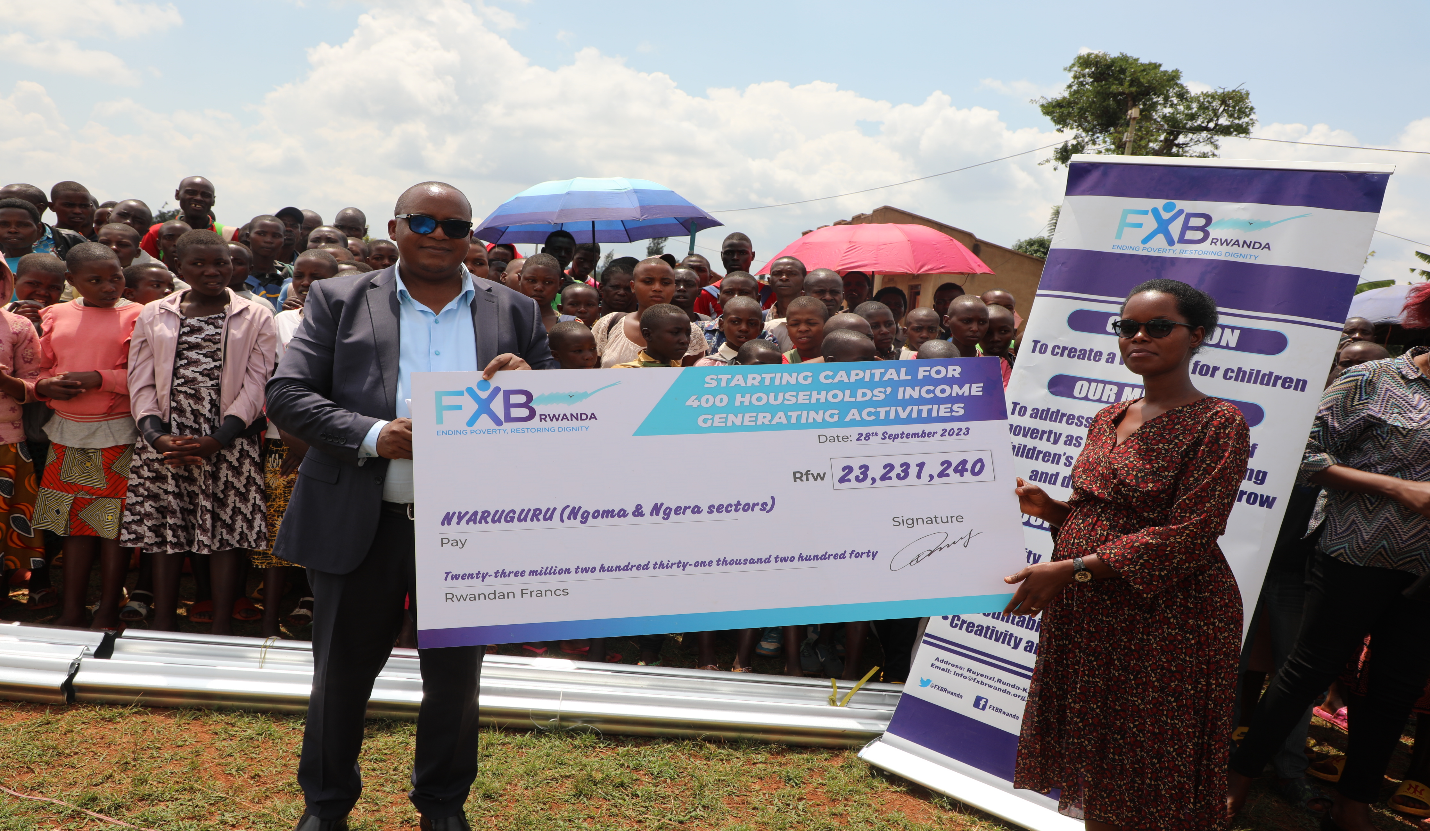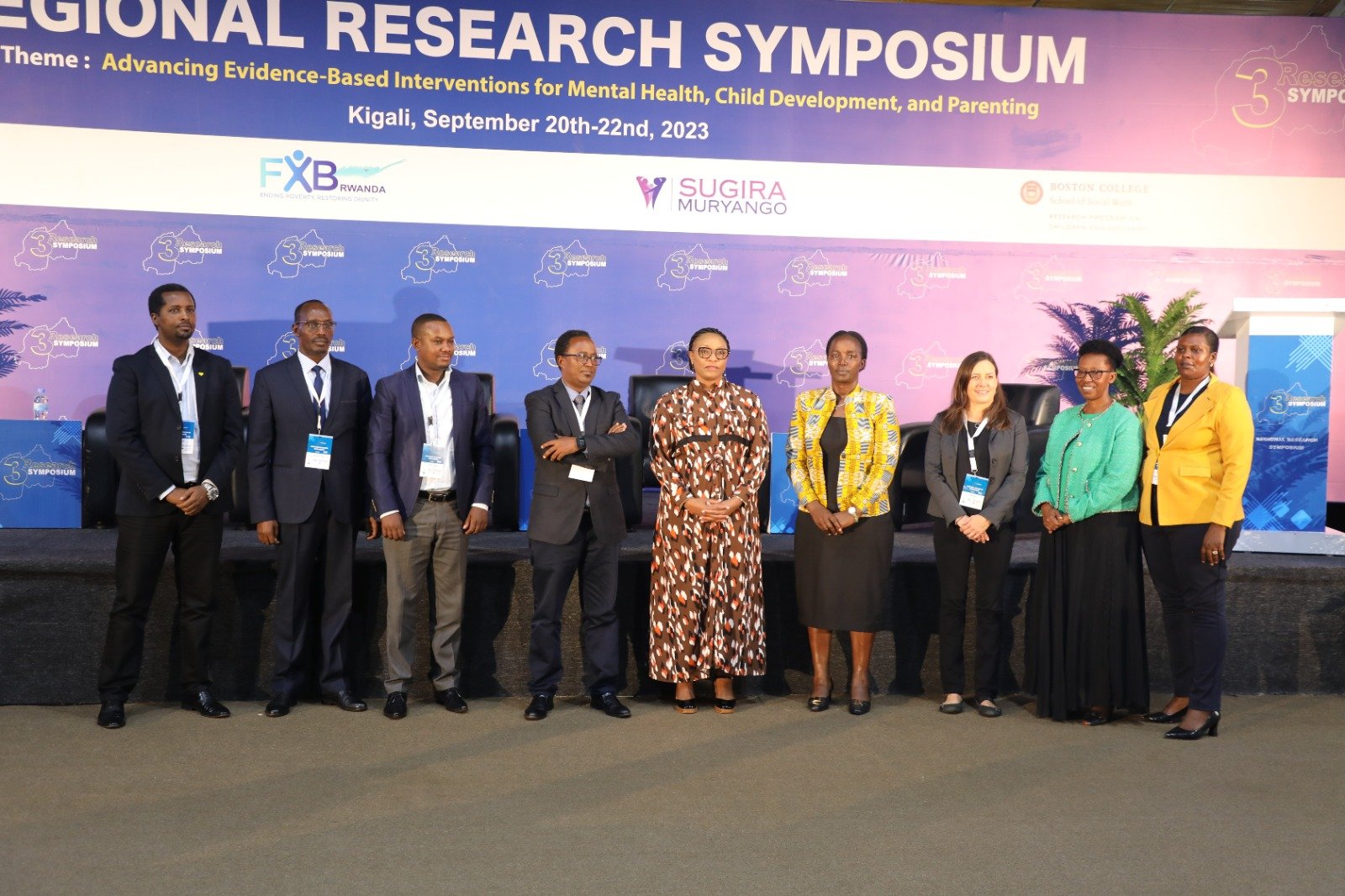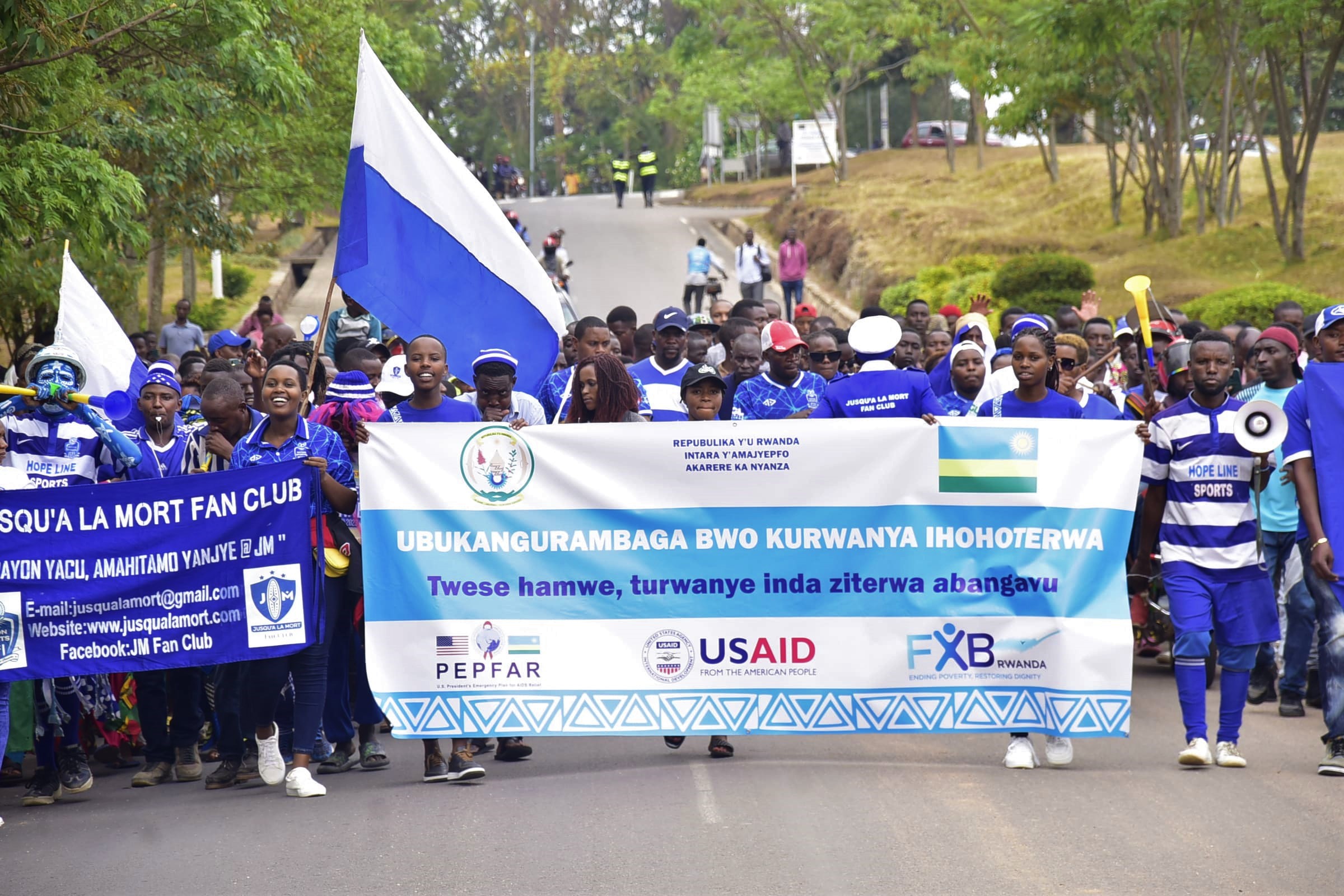FXB Rwanda implements programs intending to address poverty, HIV/AIDS, and interlinked vulnerabilities. On 25 November 2022, FXB Rwanda joined partners to launch 16 Days of Activism against Gender-based Violence (GBV) under the theme "UNITE, Build a Violence-Free Society".
Gender-based violence (GBV) is recognized as a critical fuel of the HIV epidemic in many areas where it has taken root. The 16 days campaign against violence was an opportunity for organizations to call for the prevention and elimination of violence against women and girls.
FXB Rwanda under the IGIRE-Turengere Abana program joined partners in Rwamagana district to remind community members and different stakeholders to play their role in stopping violence against women and girls. The event was held at G.S Muyumbu and brought together various interventionists who work for gender equality promotion.
‘ GBV is still a threat to human rights specifically to women’s rights and it is still there. Joining our effort together may lead to building violence-free generation and sustainable development’ Said IGIRE Turengere Abana program coordinator in Rwamagana district.
Rwanda has recognized the great progress in advancing gender equality. However, the gap is still there : Silence on GBV, lack of knowledge on the proper preservation of GBV evidence hinders access to fair justice, stigma and discrimination, and insufficient psychosocial support to the victims, etc. The results are family conflicts that some of them lead to death, family dislocation, child defilement, and teenage pregnancy.
The findings of the Demographic and Health Survey of 2020 on women’s and men’s attitudes indicated that 61 percent of women said it was justifiable to beat a wife if she cheated on her husband, and 36 percent of men agreed. Based on this fact, the Minister of Gender and Family Promotion Jeannette Bayisengen affirmed that Rwanda has a long way to go to end gender-based violence.
To respond to violence FXB Rwanda uses social norms and community mobilization activists that work in communities to change attitudes, norms, and behaviors around gender, violence, and the risk of and vulnerability to HIV infection among women and girls.






Leave a Comment